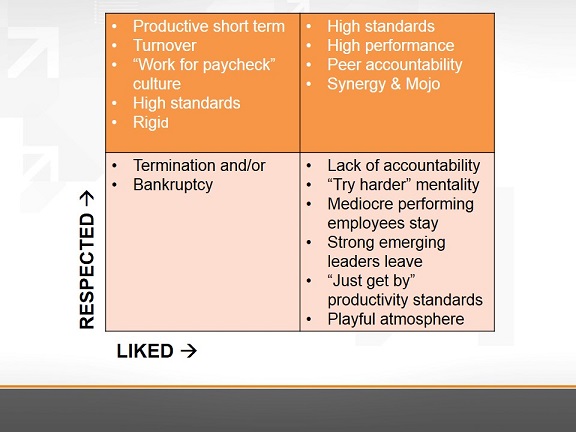
Which is more important for a leader: to be liked or to be respected? Before you answer too quickly, consider this: If we are respected and not liked, then our influence will be limited and short-lived. After all, how long can we remain committed to serving a leader we don’t
even like?
On the other hand, if we are liked and not respected, then our influence will still be limited and short lived. We don’t really want to be influenced by a leader we don’t even respect, do we? Leading is a balancing act, and as leaders we must maintain a balance between respectability
and likability.
Here’s why: As you can see, when we’re respected but not liked (top left quadrant), we may have high standards, but the production we get from our team will be short-term. Performers will quickly get fed up and leave, and those who remain will be working not because they love their work, but because they need their paycheck.
On the other hand, when we’re liked but not respected (lower right quadrant), our team may be having fun and they may stick around, but the levels of accountability, production, and standards are low.
Yet, look what happens when we’re liked and respected! We have high standards, and our teammates rise to those standards with high performance. Because of our standards, we as peers hold one another accountable, and we develop a synergy and mojo that continues to build.
-
[…] You must balance respectability and likability. […]

